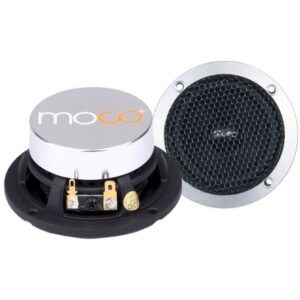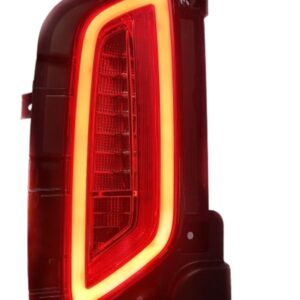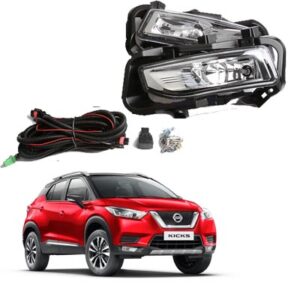The moment you drive your car off the dealership lot, it begins to depreciate. The unfortunate reality for car owners is that their vehicle’s value drops by roughly 15% to 25% in the first year alone and continues to decline as it ages. However, while depreciation is inevitable, you can take several strategic steps to preserve your car’s value and ultimately get the best possible resale price.
In this blog, we’ll dive into several key tactics that will help you get the most money when it’s time to sell or trade in your vehicle. By focusing on proper maintenance, timing, and smart decision-making, you can minimize the impact of depreciation.
1. Choose the Right Car from the Start
Some cars simply hold their value better than others. This often depends on brand reputation, reliability, market demand, and initial purchase price. If you haven’t bought a car yet but are considering resale value as an important factor, do your homework and look at depreciation rates for the models you’re interested in.
Factors that Affect a Car’s Resale Value from the Start:
- Brand reputation: Cars from brands like Toyota, Honda, and Subaru are known for their reliability, which helps them retain their value.
- Market demand: Trucks, SUVs, and hybrids are currently popular in many regions, which can boost their resale value.
- Initial price and trim level: Luxury cars and top-end trims tend to lose value faster than more affordable or mid-range options. A loaded model with numerous features may not recover the extra money spent at resale.
2. Stick to Regular Maintenance and Keep Records
A well-maintained vehicle is worth much more to a potential buyer than one that’s been neglected. Regular servicing not only keeps your car running smoothly, but it also serves as proof to future buyers that the car has been cared for. Routine maintenance includes oil changes, brake inspections, tire rotations, and engine tune-ups.
What to Do:
- Follow the manufacturer’s recommended maintenance schedule: Check your owner’s manual for intervals on oil changes, tire rotations, and other necessary services.
- Maintain service records: Keep receipts and service logs to present to potential buyers or dealerships during trade-ins. This can boost buyer confidence and help justify a higher price.
- Address issues early: Repair any minor issues as soon as they arise to prevent larger, costlier problems in the future.
3. Keep the Mileage Low
Mileage plays a massive role in a car’s resale value. Higher mileage typically indicates more wear and tear, which can deter buyers. On average, a car accumulates around 12,000 to 15,000 miles per year. If your mileage exceeds this, you may face a lower offer at resale time.
How to Keep Mileage in Check:
- Limit unnecessary trips: Combine errands into a single trip whenever possible.
- Use public transportation or carpool: If your area has reliable public transport, consider using it to reduce the miles on your vehicle.
- Consider renting a car for long trips: Renting a car for vacations or road trips keeps miles off your own car and avoids extra wear and tear.
4. Keep Your Car Clean and Well-Conditioned
First impressions matter. A car in great cosmetic condition is more appealing to potential buyers and can result in higher offers. Buyers are more likely to believe that a clean car has been well taken care of mechanically as well.
Exterior Care:
- Regularly wash and wax: Clean your car frequently to prevent the build-up of dirt, grime, and corrosive elements like road salt. Waxing every few months helps protect the paint and keeps it looking shiny.
- Avoid dents and scratches: Park in safe, less crowded areas to avoid door dings and parking lot mishaps. If you do get scratches or small dents, consider having them fixed quickly to maintain the appearance.
- Use a car cover: If your car isn’t garaged, invest in a cover to protect it from environmental damage like bird droppings, UV rays, and tree sap.
Interior Care:
- Avoid eating or drinking in the car: Spills and stains can diminish the interior’s appearance. Clean up any messes quickly if they do occur.
- Use seat covers and floor mats: These simple additions can protect the interior fabric and carpets from wear and tear.
- Keep the cabin odor-free: Avoid smoking in the car, as lingering smoke smells can significantly decrease the car’s resale value. Using air fresheners can help, but don’t let them mask bad smells.
5. Choose Timing Wisely
Timing plays a critical role in maximizing the resale value of your car. The longer you hold onto a car, the more it depreciates. But market conditions, seasonal trends, and even economic factors can affect how much you get for it.
Key Considerations:
- Sell before major depreciation milestones: Cars lose value the most in the first five years. If you plan to sell, doing so before the car turns five years old could get you a higher price.
- Pay attention to market trends: Market demand can fluctuate with factors such as gas prices or new model releases. For example, fuel-efficient cars tend to sell better when gas prices are high.
- Sell at the right time of year: Spring and summer are often the best seasons to sell, as people tend to buy cars in warmer weather. Convertibles and sports cars, in particular, are in higher demand during these months, while SUVs and trucks may perform better in the winter.
6. Consider Aftermarket Modifications Carefully
Modifying your car can make it more enjoyable for you to drive, but aftermarket modifications often hurt resale value. Custom paint jobs, body kits, or engine mods may not appeal to a broad market of buyers, and some may even see these changes as a sign of hard driving or abuse.
What to Keep in Mind:
- Stick with OEM parts for repairs: If your car requires any part replacements, use Original Equipment Manufacturer (OEM) parts instead of aftermarket ones. Cars with OEM parts tend to retain their value better.
- Avoid extreme customizations: While a custom stereo or aftermarket wheels may appeal to you, it could narrow the pool of potential buyers who share your tastes.
- Performance modifications: Enhancements like turbochargers or engine tunes might turn off buyers who are concerned about reliability and future repairs.
7. Be Honest About Your Car’s Condition
When selling your car, honesty is the best policy. Hiding issues can lead to dissatisfied buyers, legal trouble, or lower offers if they discover problems during an inspection.
How to Be Transparent:
- Disclose any accidents: If your car has been in an accident, be upfront about it. Buyers may be wary, but if you’ve had repairs done professionally, it may not affect the resale price too much.
- Provide a vehicle history report: Offer a CARFAX report to potential buyers, which will show your car’s history, including accidents, title status, and service records.
8. Know Where to Sell Your Car
Where and how you sell your car can impact its final price. Each option has its pros and cons, so choose wisely based on how much time and effort you want to invest.
Your Selling Options:
- Private sale: Selling your car privately often yields the highest price. However, it requires more effort, including taking out ads, showing the car, and negotiating with potential buyers.
- Trade-in at a dealership: Trading in your car is more convenient, but you’ll likely get a lower offer than if you sold it privately. However, dealerships offer ease, speed, and the ability to put the trade-in value toward your next car.
- Online platforms: Websites like CarMax, Vroom, or Carvana make selling your car online easier than ever, providing instant quotes and even picking up your car from your home.
Conclusion
Getting the best resale value for your car requires a combination of smart decision-making, regular maintenance, and timing. While depreciation is inevitable, taking these steps can help mitigate its effects and ensure you get the highest possible price when it’s time to sell. Whether you’re selling privately or trading in at a dealership, being proactive about preserving your car’s condition, both mechanically and cosmetically, is key to maximizing its value.




